You might be unsure of the size of wire to use if you are installing a 200 amp service underground. This is certainly not a straightforward task. It may require a permit, and a pro should install it. We researched the size and type of wire that should be used for 200 amp service underground and have information to share.
What you'll need for a 200 amp service underground is:
- #2/0 copper wire, or
- #4/0 aluminum or copper-clad aluminum wire
You must use the type and size of wire described above to securely operate a 200 amp electrical service. They're the safest cable sizes since you can use the entire amperage of the electrical service with them without experiencing an excessive voltage drop. Continue reading to learn more about the wire used in underground amp service and related topics.
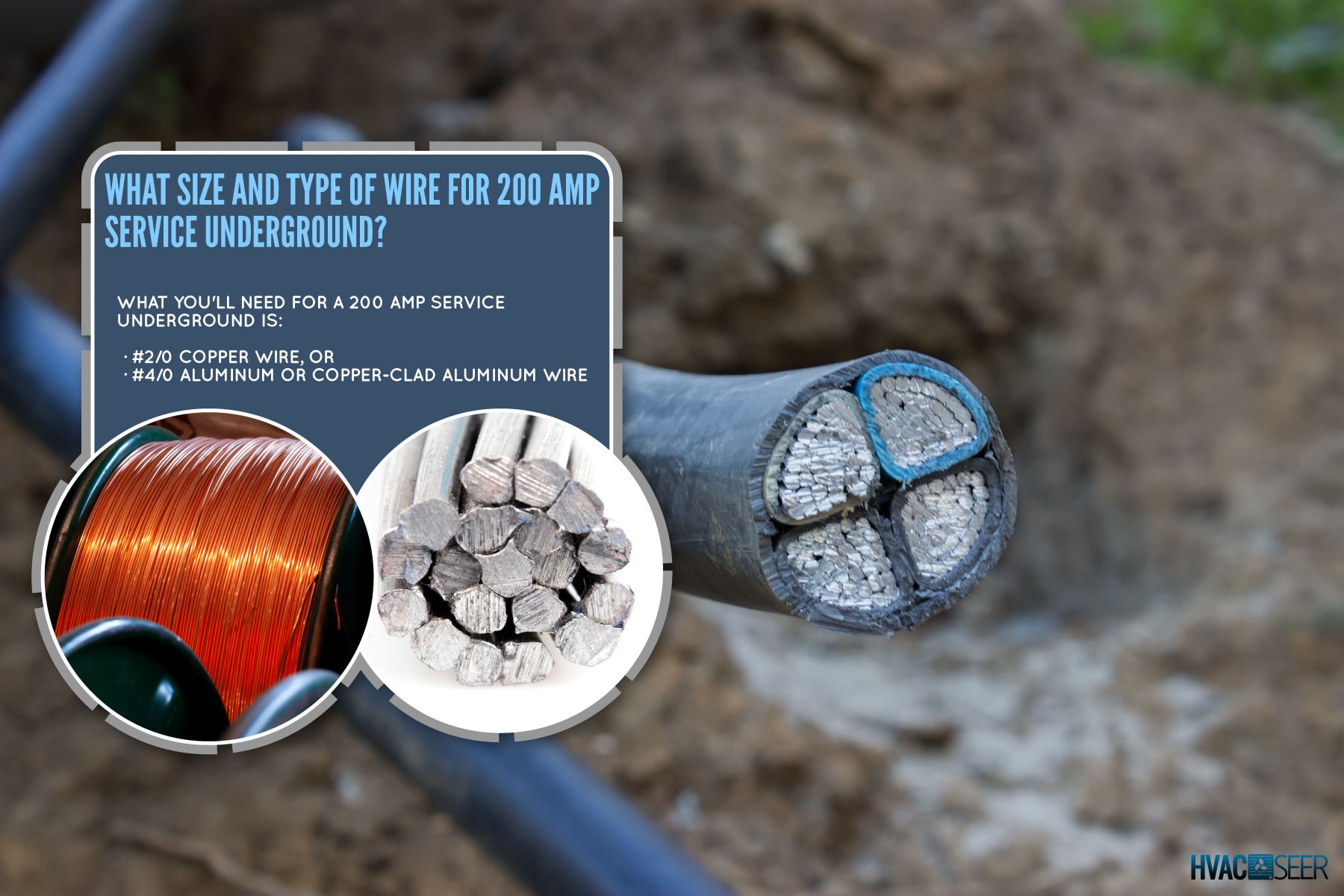
Size And Type Of Wire
The future of homeownership is in smart houses and digital connectivity. Many houses are switching to 200 amp service, and that necessitates electrical panels which can manage this coming digital era.
To establish your electric system so that it will work in the long run, you need to understand what size wire to use for 200 amp service underground.
#2/0 Copper Wiring
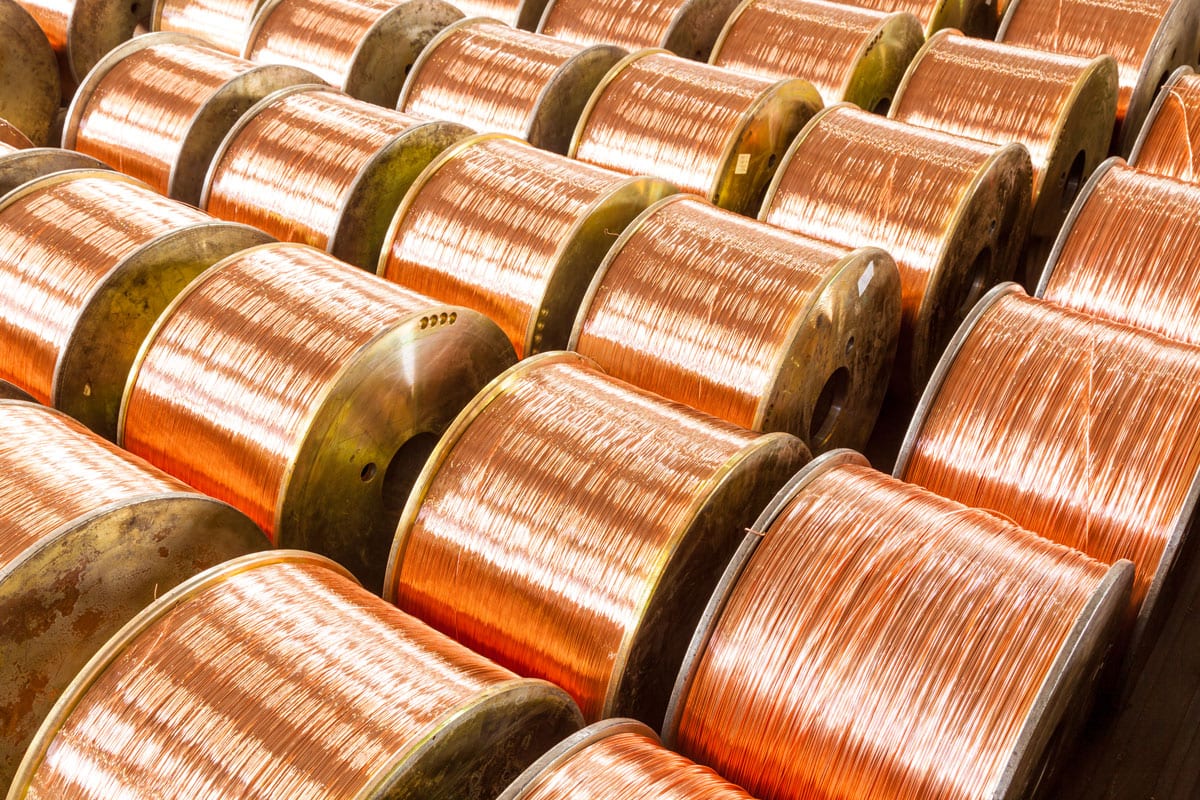
The best wire available is made of copper. It is perfect for wiring in any circumstance due to its strong conductivity, heat resistance, corrosion resistance, and flexibility.
But installing copper can be expensive and difficult. Copper is a naturally conductive metal with high conductivity. The only metal that conducts electricity better is silver.
Due to its excellent electrical conductivity, it may be used across long ranges and with significantly thinner gauges than aluminum. Even though oxidation can alter the metal's color, copper stays thermally resistant and resists corrosion.
Because it resists corrosion, copper is a durable material. Additionally, it is much more resistant to heat than aluminum. It maintains its position since heat doesn't cause it to expand a great deal.
Copper wire is significantly easier to twist as well as a wrap because it can be made from smaller strands. Again, copper is more durable and highly conductive than other materials, so it can retain its voltage over greater distances.
While it has certain disadvantages that we'll cover later in this article, copper is unquestionably the greatest material for cabling.
#4/0 Aluminum Or Copper-Clad Aluminum Wire
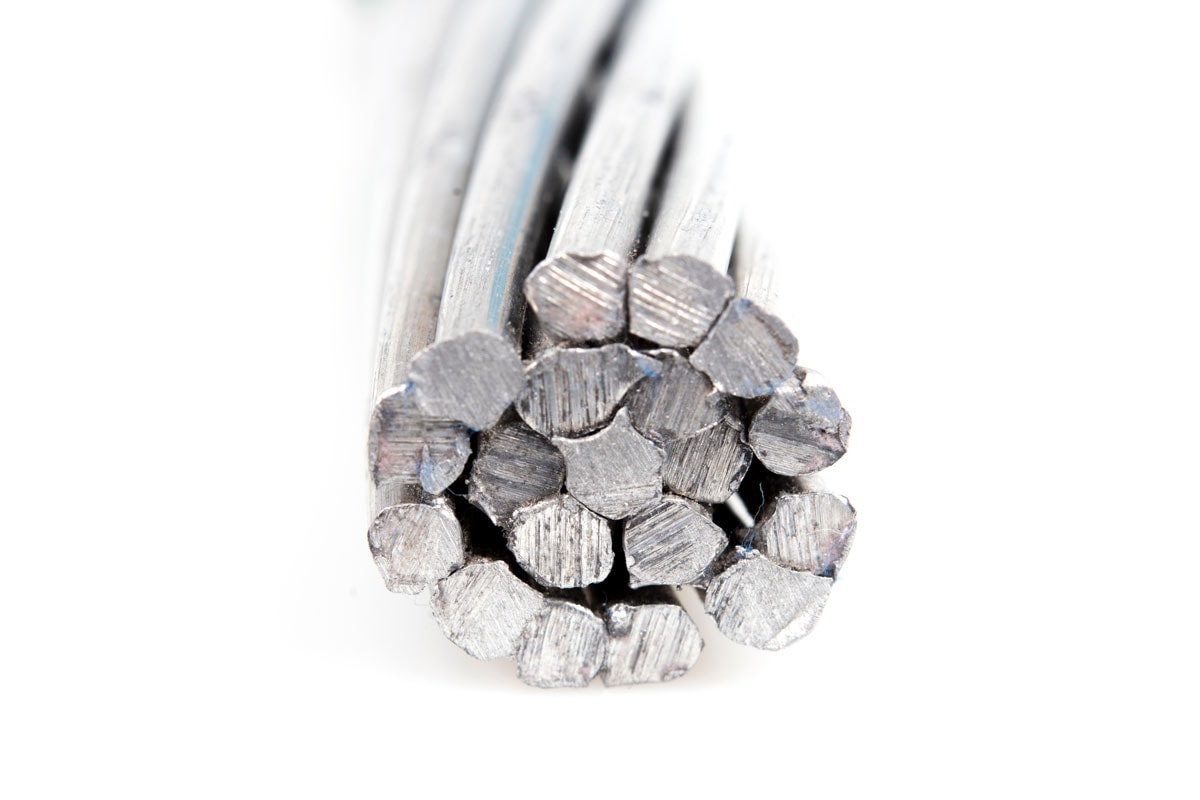
Compared to copper, aluminum is less conductive and reacts to heat and corrosion more quickly. Additionally, a bigger gauge, or thicker wire, is required to compensate for the loss of conductivity.
But for a few reasons, most electricians like aluminum. The drawbacks of copper are its high cost, weight, and difficult installation. And for precisely these reasons, aluminum is frequently chosen by electricians.
Although a larger gauge is needed for adequate conduction, aluminum remains lightweight over copper, making installation simple. It's the best material if you need work completed quickly. Aluminum is less expensive than copper. It is cost-effective and performs well.
Copper-Clad Aluminum
Your third choice offers some of the advantages of the first two, and that is copper-clad aluminum. We'll contrast it with the other two.
Copper-clad aluminum costs less than pure copper. It is not the least expensive option, however, because it costs more than aluminum.
This type of wire guards against and resists corrosion. Copper-clad aluminum does need to have an antioxidant coating when it's hooked up to the power terminal.
The conductivity of copper-clad aluminum falls somewhere between the two previous materials. You will need #4/0 copper-clad aluminum wire for 200 amp service.
Check out this copper-clad aluminum wire on Amazon.
Additional Considerations
You should take a few more variables into account before deciding on the wire.
Local Laws And Regulations
Check the National Electrical Code (NEC) to confirm that you are aware of the electrical regulations in your location. Additionally, you must confirm that you have all the necessary permits for this job.
The NEC states electrical codes, but local laws may differ. By hiring a licensed electrician, you can be sure that your 200 amp electrical service complies with all local regulations and license requirements.
The NEC code, which may differ from your local building code, specifies the 200 amp size wire that is mentioned in this article. The NEC codes will be adopted by your local code or modified to meet their specifications.
A certificate of occupancy is required for power to be connected to the house. If the electrical work passes inspection, the certificate is given out.
Voltage Drop
A voltage drop is a decline in electrical potential along a current's course in a circuit of electricity. Voltage drops across conductors, contacts, and connections are undesirable because they result in the loss of some energy from the source's internal resistance.
The amount of power that can be transformed within the electrical load into another usable form of energy is inversely correlated with the voltage drop across the load.
Distance
Copper wire is likely the best choice when you require electricity over distances of more than 50 feet. Over a distance of 50 feet, #2/0 copper wire and #4/0 aluminum wire can handle less than a 3% voltage loss.
You'll probably require a larger gauge of copper wire for runs longer than 50 feet.
Cost Of Underground Electrical Service
Digging a trench, conduit, and new cable cost about the same, whether you're upgrading to a 200-amp service or maintaining your current service.
The price gap will depend on if you need to upgrade your electrical panel and whether any additional wiring expenses need to be included in the overall price of the operation.
Underground electrical service maintenance typically costs $12,250, although expenses might differ greatly. If your current electrical panel doesn't require a complete overhaul, upgrading to a 200-amp will cost you up to $2,000.
Advantages Of Underground Electrical Service
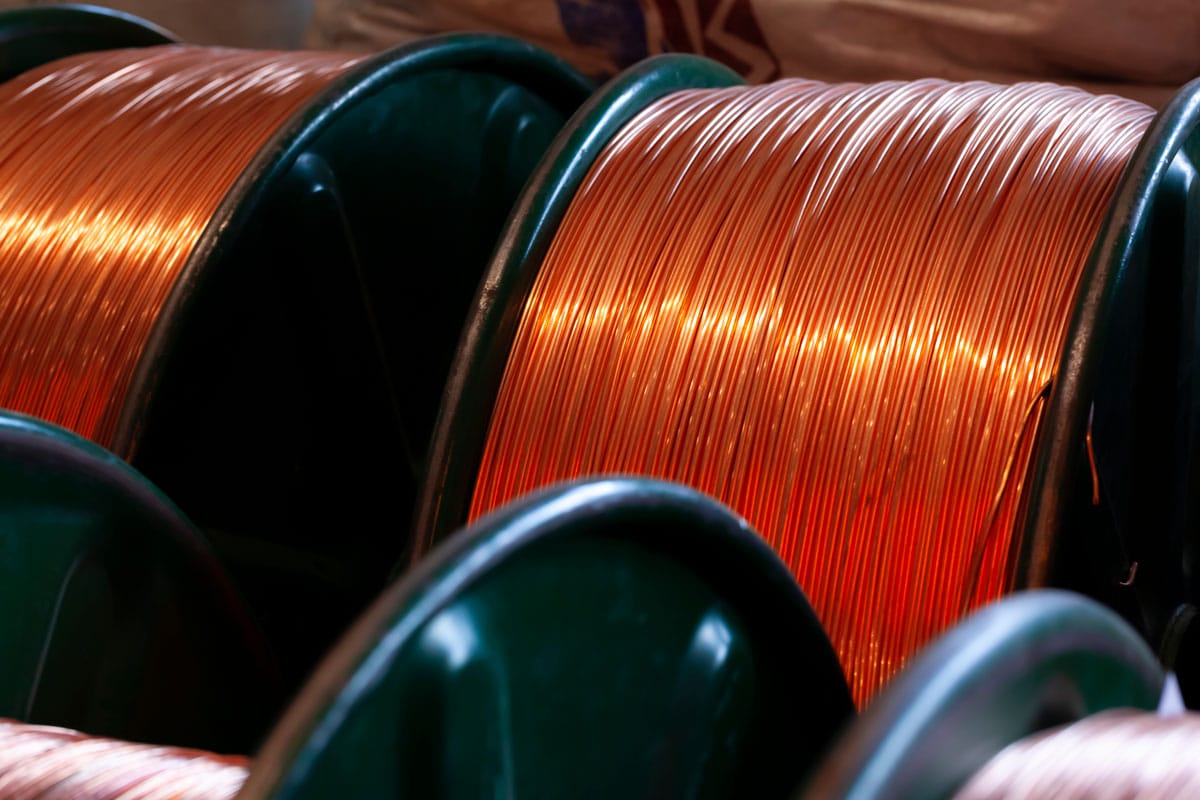
You can avoid unattractive overhead power lines and eliminate the requirement for a meter erected in the front of your house by opting to install subterranean electrical service.
Gas, power, and sometimes even cable service and telephone are installed in the very same ditch. Underground service improves electricity dependability by reducing the likelihood of power failures due to bad weather and fallen trees.
It also lessens the risk of live-wire contact. The installation of underground service improves curb appeal by getting rid of unsightly overhead cables.
Underground electrical service reduces the price of the tree pruning required to remove the drooping wires. And less damage to your house means fewer places where insects and water can enter.
Even though subterranean transmission lines are shielded from the typical causes of power outages—wind, ice, and tree damage—they are much more susceptible to flooding.
Lighting problems and equipment malfunctions can potentially cause underground lines to fail. So both subsurface and overhead power lines have advantages and disadvantages.
Summing Up
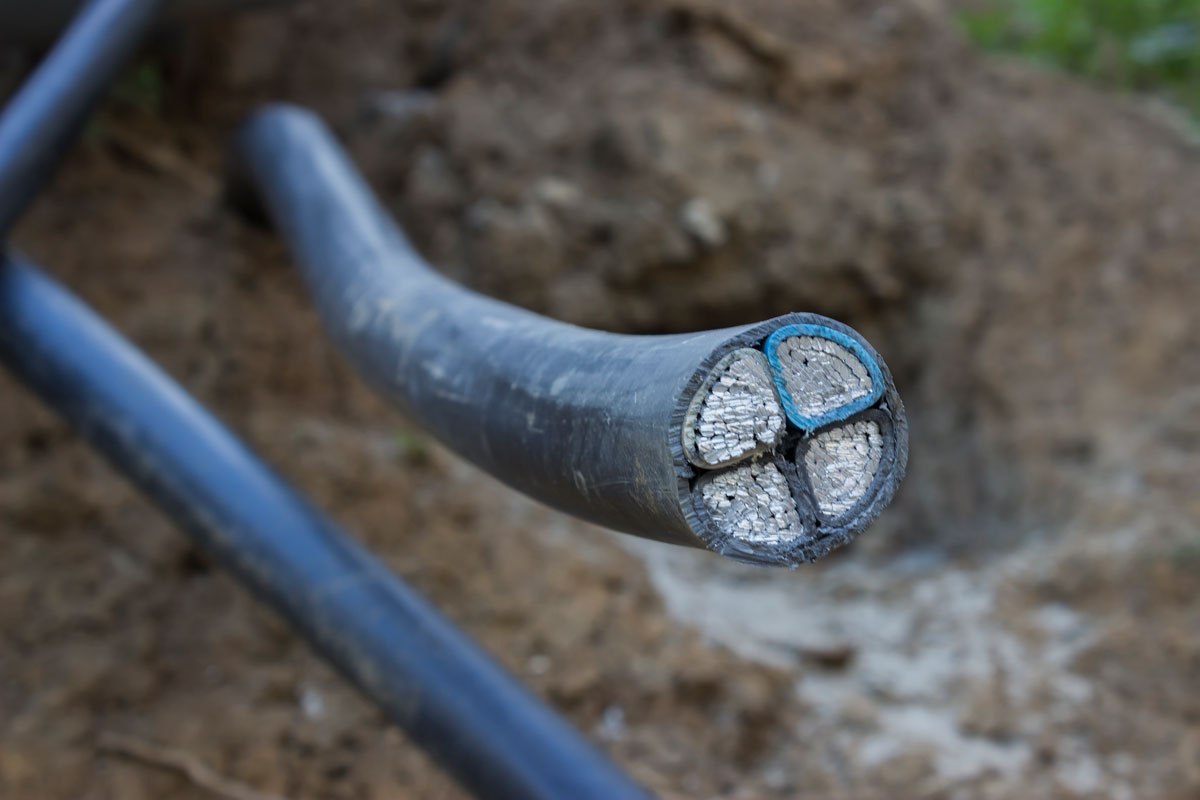
The size and type of wire that should be used for 200 amp service underground is #2/0 copper wire or #4/0 aluminum or copper-clad aluminum wire.
Homeowners should not attempt to install 200 amp wire themselves. A skilled and licensed electrician is needed for the project. To install a 200 amp service, you need to consider local laws and regulations.
Here are some related articles that you may want to read:
Does Expanding Foam Affect Cables Or Wiring?
Water Pipes Above Electrical Panels – Is It Safe? What You Need To Know!

